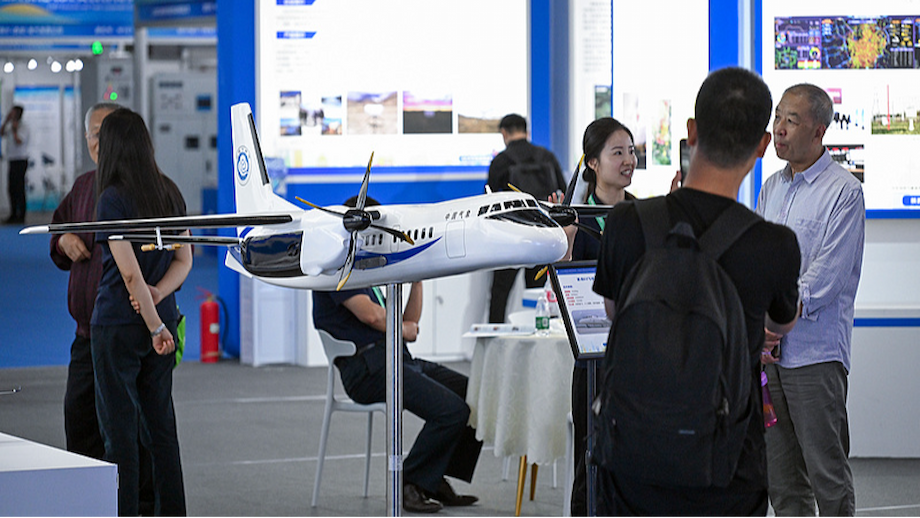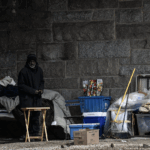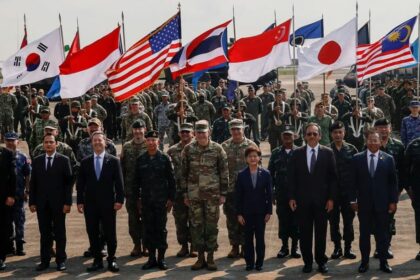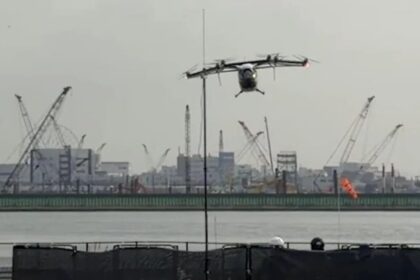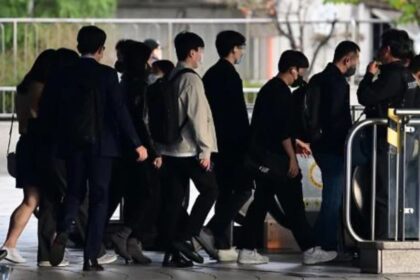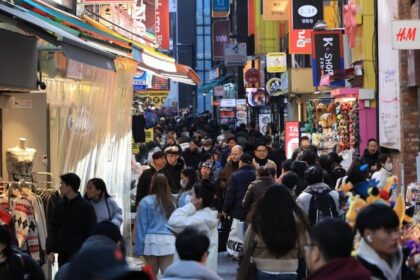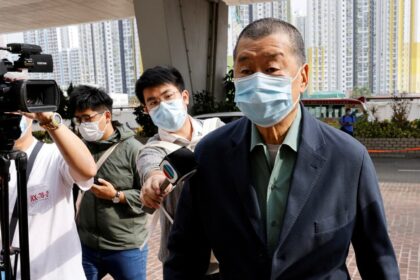Xi’an Prepares to Host the 2025 Euro-Asia Economic Forum
From September 23 to 25, 2025, the historic city of Xi’an in northwest China’s Shaanxi Province will become the focal point of Eurasian economic and diplomatic engagement as it hosts the 11th Euro-Asia Economic Forum. Under the theme “Unleashing New Synergies in Eurasia, Co-Building a New Pattern for Sustainable Development”, this biennial event aims to deepen economic, political, and cultural ties across the vast Eurasian continent. The forum is not only a showcase of China’s modernization and diplomatic ambitions but also a platform for forging new models of cooperation in a rapidly evolving geopolitical landscape.
- Xi’an Prepares to Host the 2025 Euro-Asia Economic Forum
- What Is the Euro-Asia Economic Forum?
- Why Xi’an? The City’s Strategic and Symbolic Role
- Key Themes: Economic Integration, Sustainability, and Connectivity
- Diplomatic Dynamics: The SCO and Beyond
- Comparative Perspectives: Eurasian Forums and Regional Cooperation
- Challenges and Opportunities Ahead
- In Summary
The Euro-Asia Economic Forum is a flagship initiative under the framework of the Shanghai Cooperation Organization (SCO), reflecting China’s growing influence in Eurasian affairs and its commitment to multilateralism. As the world grapples with shifting alliances, economic uncertainty, and the urgent need for sustainable development, the 2025 forum in Xi’an is poised to play a pivotal role in shaping the future of Eurasian cooperation.
What Is the Euro-Asia Economic Forum?
Launched in 2005, the Euro-Asia Economic Forum has become a cornerstone of economic dialogue and collaboration among SCO member states, observer countries, and dialogue partners. The forum convenes every two years, bringing together government officials, business leaders, academics, and representatives from international organizations to discuss pressing issues ranging from trade and investment to technological innovation and cultural exchange.
The 2025 edition, jointly organized by the Shaanxi Provincial People’s Government, the SCO Secretariat, China Development Bank, the Export-Import Bank of China, and other key institutions, will feature 13 sub-forums. These will cover topics such as industrial capacity cooperation, rule-making, cultural exchange, technological innovation, and collaborative governance. Over 10 economic and trade exchange activities are planned, alongside the release of a white paper analyzing Eurasian economic trends under the Belt and Road Initiative (BRI).
According to Niu Kai, vice mayor of Xi’an and a member of the organizing committee, the forum is designed to serve China’s broader diplomatic objectives, highlight the achievements of Chinese modernization, and foster people-to-people connectivity across Eurasia. Delegates will include political dignitaries, ministerial-level officials, local governors, ambassadors, multinational executives, and scholars from across Central, South, and West Asia, as well as Belt and Road partner countries.
Why Xi’an? The City’s Strategic and Symbolic Role
Xi’an, once the eastern terminus of the ancient Silk Road, is a city steeped in history and symbolism. Today, it stands as a modern hub for international trade, logistics, and cultural exchange. The city has recently hosted major events such as the Silk Road International Exposition and the Conference of Shaanxi Entrepreneurs, underscoring its role as a bridge between China and the wider Eurasian region.
Xi’an’s strategic location makes it a natural choice for hosting the Euro-Asia Economic Forum. The city is a key node in the China-Europe freight train network, with over 30,000 trains departing from Xi’an to destinations across Eurasia. Its international airport has expanded rapidly, adding new routes to cities like Chicago, Hanoi, and Istanbul, further enhancing connectivity. The city’s commitment to innovation is evident in the development of cross-border e-commerce zones and the establishment of cultural showcases, such as the world’s first on-site museum within an airport terminal.
By hosting the forum, Xi’an aims to reinforce its status as a gateway for Eurasian cooperation and a model for sustainable urban development.
Key Themes: Economic Integration, Sustainability, and Connectivity
The 2025 Euro-Asia Economic Forum will address a range of critical issues facing Eurasia, with a particular focus on economic integration, sustainable development, and connectivity.
Economic Integration and Trade
In recent years, Eurasia has witnessed a surge in economic cooperation, driven by initiatives like the Belt and Road and the growing importance of the SCO. Central Asian countries, in particular, have demonstrated robust GDP growth and deepening regional ties, even as they navigate complex relationships with Russia, China, and Western partners. According to the Asian Development Bank, Kazakhstan, Kyrgyzstan, Tajikistan, Turkmenistan, and Uzbekistan all posted strong economic growth in 2024, buoyed by infrastructure investments and expanding trade corridors.
China’s role as a key economic partner has grown significantly, with major investments in railways, ports, and energy infrastructure. The launch of the Kashi–Andijan railway and increased Chinese participation in the Middle Corridor—a trade route connecting China to Europe via Central Asia and the Caspian Sea—reflect a more proactive approach to regional integration. These developments are complemented by multilateral efforts from the European Union, World Bank, and Asian Infrastructure Investment Bank to fund and support critical infrastructure projects.
However, the region also faces challenges related to economic dependency, debt sustainability, and the need to balance the interests of powerful neighbors. Countries like Tajikistan and Kyrgyzstan remain heavily indebted to China, while Turkmenistan’s economy is reliant on natural gas exports to China. The forum will provide a platform for discussing strategies to diversify economies, enhance resilience, and promote equitable growth.
Sustainable Development and the Green Transition
Sustainability is at the heart of the 2025 forum’s agenda. As the world confronts the realities of climate change, Eurasian countries are increasingly focused on green development, renewable energy, and environmental cooperation. The European Union and Asia Pacific together account for nearly 70 percent of global emissions, making their partnership crucial for the global green transition.
The EU has emerged as a leader in climate policy, embedding environmental objectives into trade agreements and launching targeted green cooperation initiatives across Asia. These include partnerships on critical minerals, hydrogen, and clean energy, as well as financial support for the early retirement of coal plants and the development of renewable energy systems. The Belt and Road Initiative has also begun to prioritize green infrastructure, with China investing in projects that promote low-carbon growth and environmental protection.
Despite these efforts, significant challenges remain. The Asia Pacific region is highly exposed to climate risks, with extreme weather events affecting millions and air pollution causing millions of premature deaths annually. Bridging the gap between ambition and action will require sustained political commitment, innovative financing, and the integration of environmental safeguards into economic development plans. The forum’s discussions on sustainable development are expected to yield new partnerships and concrete actions to advance the green transition in Eurasia.
Connectivity and Logistics: Overcoming Bottlenecks
Efficient connectivity is essential for unlocking Eurasia’s economic potential. However, the region faces persistent challenges related to border bottlenecks, infrastructure gaps, and logistical inefficiencies. According to the International Road Transport Union (IRU), Eurasian border crossings are struggling to cope with rising freight volumes, leading to long queues and costly delays.
Innovative solutions such as the TIR (Transports Internationaux Routiers) system have proven effective in reducing border-crossing times and costs. The implementation of digital tools like express TIR Green Lanes and electronic pre-declaration systems is further enhancing the efficiency and security of cross-border trade. The IRU has called for the swift adoption of eTIR across the region to maximize these benefits.
Xi’an’s role as a logistics hub is underscored by its expanding freight train network and new air cargo routes, which facilitate trade between China, Central Asia, Europe, and beyond. The forum will spotlight best practices and explore new initiatives to strengthen transport corridors, streamline customs procedures, and promote seamless connectivity across Eurasia.
Diplomatic Dynamics: The SCO and Beyond
The Euro-Asia Economic Forum operates within the broader context of the Shanghai Cooperation Organization, a regional bloc that has expanded its focus from security and counter-terrorism to encompass economic and military cooperation. The SCO now includes 10 permanent members and 16 dialogue and observer countries, making it one of the largest regional organizations in the world.
Recent years have seen high-profile summits attended by leaders such as Chinese President Xi Jinping, Russian President Vladimir Putin, and Indian Prime Minister Narendra Modi. These gatherings serve as powerful displays of Global South solidarity and provide a platform for dialogue on issues ranging from trade and connectivity to regional security and sovereignty.
However, the SCO faces challenges in translating its vision into concrete outcomes. Frictions persist between member states, and the organization’s practical impact on security and economic cooperation remains a subject of debate. Nonetheless, the forum’s emphasis on inclusivity and dialogue reflects a broader trend toward multivector diplomacy, as Central Asian countries seek to balance relations with China, Russia, the EU, and other partners.
Xi’an’s hosting of the 2025 forum is emblematic of China’s ambition to shape a post-American-led international order and to position itself as a champion of multilateralism and sustainable development.
Comparative Perspectives: Eurasian Forums and Regional Cooperation
The Euro-Asia Economic Forum is part of a wider ecosystem of regional gatherings aimed at fostering economic integration and cooperation. The Eurasian Economic Forum, for example, brings together members of the Eurasian Economic Union (EAEU) to discuss strategies for economic integration and development. The 2025 edition in Minsk attracted over 2,700 participants from more than 30 countries, highlighting the growing importance of such platforms.
Similarly, the Eastern Economic Forum in Vladivostok draws representatives from over 70 countries, providing a space for open dialogue and business collaboration. These forums, along with the IMF’s Asia-focused conferences, underscore the region’s centrality to global economic growth, innovation, and resilience.
What sets the Euro-Asia Economic Forum apart is its explicit focus on bridging East and West, leveraging the strengths of both advanced and emerging economies, and promoting sustainable, inclusive development. By convening a diverse array of stakeholders, the forum seeks to generate actionable solutions to shared challenges and to build a more connected, prosperous Eurasia.
Challenges and Opportunities Ahead
As Eurasia enters a new era of cooperation, the region faces both significant opportunities and formidable challenges. The ongoing war in Ukraine, shifting power dynamics, and the need for economic diversification all shape the context in which the 2025 Euro-Asia Economic Forum will unfold.
Central Asian countries are demonstrating greater autonomy and confidence, pursuing balanced relationships with major powers while advancing their own development agendas. Infrastructure investments, digitalization, and green transition initiatives are creating new pathways for growth and integration. At the same time, concerns about debt sustainability, environmental risks, and political stability remain salient.
The forum in Xi’an offers a timely opportunity to address these issues head-on, to forge new partnerships, and to chart a course toward a more resilient and sustainable Eurasian future.
In Summary
- The 2025 Euro-Asia Economic Forum will be held in Xi’an, China, from September 23 to 25, focusing on sustainable development and Eurasian cooperation.
- The forum is a key platform under the Shanghai Cooperation Organization, bringing together leaders, officials, business executives, and experts from across Eurasia and beyond.
- Key themes include economic integration, sustainable development, connectivity, and people-to-people exchange.
- Xi’an’s strategic location and modern infrastructure make it an ideal host, reinforcing its role as a gateway for Eurasian trade and innovation.
- The forum will address challenges such as border bottlenecks, debt sustainability, and environmental risks while promoting green transition and digitalization.
- Regional diplomacy is shifting toward multivector engagement, with countries balancing relations among China, Russia, the EU, and other partners.
- The event is expected to yield new partnerships, policy initiatives, and actionable solutions for a more connected and prosperous Eurasia.


